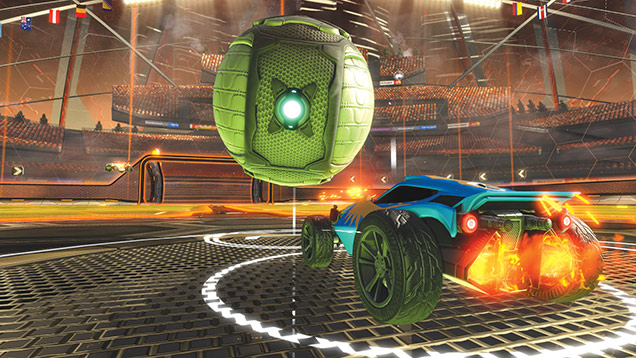G33K LYFE: Batman and Rocket League rack up summer support
 CREDIT: PSYONIX
CREDIT: PSYONIXCars, bright colours, a space-like soccer field, and a ball make Rocket League a must-try for all gamers.
The summer of 2015 was no different than any other summer geekwise, gracing us with a handful of top-quality indies, a few remasters and a singular AAA release.
The main event of the summer was Batman: Arkham Knight, the conclusion to Rocksteady’s acclaimed trilogy, largely considered to be the best superhero videogames of all time.
Released for PlayStation 4, Xbox One and PC on June 23, the game was only a summer release due to a series of delays as it was originally planned for the previous October.
The time spent in development limbo, often a curse on big releases, seemed to give the studio enough time to perfect nearly every element of the series they had created.
The combat system, so shamelessly ripped off by so many modern action titles, such as Shadow of Mordor and the upcoming Mad Max game, had never been more responsive. Gotham City had never been so vast and Batman and his rogue’s gallery had never looked so pretty.
Additions to the voice cast, such as Fringe’s John Noble as Scarecrow and Breaking Bad’s Johnathan Banks as Commissioner Gordon added extra gravitas to the larger scale of the game. Though the game still retained Kevin Conroy and Mark Hamill as Batman and the Joker, which were necessary.
The addition of the Batmobile was the only point of contention among critics; some felt it took away the feeling of being Batman and others praised its use in combat and puzzle solving.
Yet all of the critics agreed that too much of the story was taken up driving.
Major story twists were also deemed too predictable for the players who are familiar with the story of Batman.
Arkham Knight rapidly became the fastest-selling game of the year and will likely hold that position until the holidays.
Despite the heavy praise on consoles, the PC port was an unqualified disaster, as even those with the high-end components were faced with a poorly optimized experience.
As negative reports began to pour in, the studio issued a rapid apology, promising to repair the damage and ended up removing the game from retail circulation until further notice.
The biggest indie game of the summer was undoubtedly Rocket League: Psyonix’s easy-to-learn, but hard-to-master game of soccer with rocket cars.
The simple premise and massive potential for competitive play made the game an instant hit.
Rocket League at its core appeals to everyone; it is easy to understand, easy to pick up and start playing and features online and split-screen options.
As you and your friends improve, you can use your strategies against others, only to inevitably discover they are far better than you.
With over 5 million downloads and over 150,000 people playing at any given time, according to an August report, even the developers are surprised by how quickly gamers have taken to the game.
The success also provides a fine example to the calls that gamers have been making for a return to simplicity and affordability in their games. Not everything has to be Arkham levels to resonate with players; it just needs to be fun.














